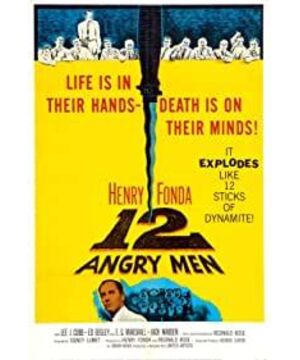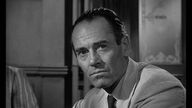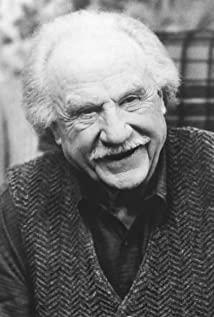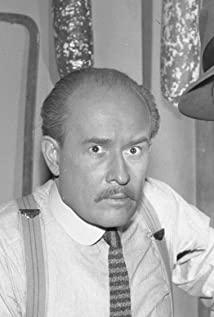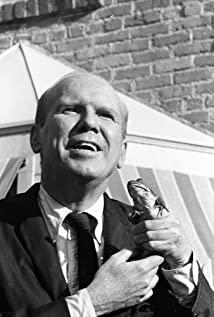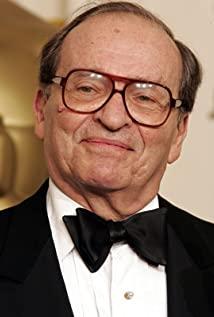When I found myself watching a law-related film, I felt a little ashamed of the law course I took in college. Because my following understanding and discussion may seem to professionals in the field of law to be nothing more than the most superficial point of view, but I dare to say it, even if it adds to the laughter.
Starting from the most basic thinking in jurisprudence, the core starting point for the actor to initiate this debate is: Suspect no crime . As he says in the movie: I don't know if he's guilty, and I don't know if he's innocent. But it is precisely because of this "don't know" that we should not hastily hit the heavy hammer of punishment.
Behind the law is responsibility. In fact, there are two layers of responsibility in this discussion that deserve further investigation. The first layer is the burden of proof. Although this film does not allow the audience to stand on the same starting line as the characters in the play, like the original reasoning work, but at least the protagonists are receiving the same case information. The collision of views, all disputes are only presented in court. evidence of. Since the jury wants to make a "guilty" verdict, it must fulfill the corresponding burden of proof. These evidences should not just be in context, but should be repeated until all the details are fully reasonable. The second tier is jury duty. When we face a major decision, such as a life or death issue, should we choose to face it, escape it, or converge without a claim? When we write down a cold verdict on a piece of paper, but there is no guarantee that it is correct, should we take the risk of lifelong regret, or leave the problem to the next jury with peace of mind and let the truth be covered up forever In another vote yawning?
All we see is a perspective, not a fact; all we hear is an opinion, not the truth. Throughout the world, who can be rational enough to leave all identities and positions behind when making a decision. Because I thought he was guilty, I heard the old man walking up the stairs for 20 seconds, not 15 seconds; because I thought he was guilty, I heard him say he was "walking" over, not "running"; because I thought he was guilty, so all I saw was the exquisite folding knife, not the spectacle marks by the bridge of the nose. Prejudice is not derogatory. From the moment we open our eyes, our perspective is no longer neutral.
It is precisely because people can't avoid these viewpoints that they carry a standpoint and hold a prejudiced attitude, so we need to discuss and communicate. Every time the male protagonist argues, he just uses his ideas to demonstrate the unreasonableness of the case story, and makes practice for the sake of argumentation (buying an identical murder weapon) to arouse everyone's suspicion. Because of different social experiences and thinking patterns, new irrationality will be discovered under discussion, and new doubts will arise after information exchange. Whether or not these doubts can guide everyone to the final truth, it doesn't matter, because every inch is worth an inch.
So what is reasonable, what is doubtful, and what is the so-called "reasonable doubt"? Why is the old man's unequivocal testimony questionable, and the boy's statement that "the short blade was lost in his pocket" couldn't be a lie? Why should the woman's testimony be judged unreasonable by the action of touching the bridge of the nose, and the perpetrator of the murder in front of the window should be believed to be someone else? Even if you see the murder scene close to your face, it may just be a misjudgment in a trance; even if you hold the knife and feel the touch of piercing your body, you may just stab the pillow bag in a panic. We can't prove that anything is 100% true, so how should we determine reasonable boundaries.
Maybe everyone has a biased point of view. Even though everyone experiences different tempering in the world, we can always build a solid foundation for communication through interpersonal tempering: consensus . It's the consensus that a train whizzes by without hearing too fine a sound; it's a consensus that a lame old man can't run a long corridor in 15 seconds; a woman tossing and turning doesn't sleep with glasses on, it's a consensus consensus. People’s lives are completely different, but we can always extract commonalities from similar experiences. After externalized expression, it becomes a consensus, and those who challenge the consensus are unreasonable and worthy of suspicion.
Consensus is not truth, much less truth. The point of view under the consensus is only a highly recognized possibility. It can be subverted, but it needs to come up with a more reasonable explanation. The "reasonable" here refers to the special situation that fits the situation and the situation that is accidental. In order to pursue the truth of the incident under this consensus, we should continue to explore the details, because only the details can allow us to strip away the original appearance of everything.
But is it really the best policy to look for details when it comes to understanding events?
In the face of public events, we often say that everyone has the right to pursue the truth and understand the details. But in the "4-9" incident, this digging into the truth is implicitly hurting others. We don't understand why the public authorities don't make the video of the jumping off the building public. We think it's unreasonable and questionable. We proudly think that we are helping justice, but we can't see the reasonable running time of the official internal procedures, and we can't see it. When it comes to the people involved in the incident standing elsewhere, it is impossible to see the fermentation of public opinion under the misdirection of black hands.
Based on all explicit and implicit reasons, the surveillance video was released. The boy was trapped in love and made many actions to hurt himself, and finally chose one hundred and one hundred. Netizens breathed a sigh of relief and sighed that under the bright sky, everything can be revealed. But have we ever thought about the psychological burden and rumors that the accused girl and her family will bear in the future? "Flying Huangpeng and stepping, can't take care of the toad." We, who charged in pursuit of the truth, could not see the people who were knocked over.
I don't know how to make a final conclusion, just as I don't know what a thorough rationale is; I don't know whether I should pursue exhaustive details, just as I don't know what an irrefutable truth is.
View more about 12 Angry Men reviews


